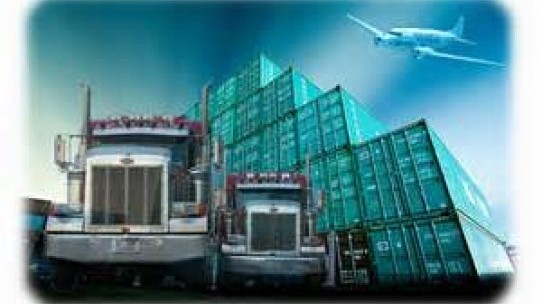Trade and Exchange Rates
2:24 pm, Mon June 2, 2014
By Dashan Hendricks
The International Monetary Fund (IMF) and local authorities have been raising arguments in recent times which seem to suggest that Jamaica's trade imbalance is a result of an over-valued currency. And so the argument goes, we should allow the currency to depreciate to the point where imports become so expensive, it forces us into import substitution, that is, force us to produce more goods locally. Higher local production should eventually feed into higher exports, which is what the country needs to reduce a yawning trade gap.
So the language has always been that we must export and that any business that exports is good. The alternative language is that buying goods from abroad is bad, because the more we import, the more our currency will depreciate.
Not about exports
The fact is, trade is not about exports, it’s about imports. We engage in trade to get things which we either cannot produce ourselves, because we are not endowed with the resources to do so (for example, buying oil to run our electricity generating plants and cars) or cannot produce cheap enough. It's to pay for those imports why we export.
But economic activity is about consumption and not about production. No business produces just for production's sake. Production is always geared to a consumer. And for consumers, the more we consume, the better off we are thought to be. In that sense, those things we send abroad are things which are not available for us to consume.
If that is the case, then as Adam Smith (the father of modern economics) puts it, the proper objective of a nation, is to get as a large a volume of imports for as small a volume of exports as possible. No one running a private home, regards sending out more than we get as a favourable balance in a household, because that is not good for welfare. Human beings try to consume as much as they can for as little as possible.
Sound economics?
Given that, is a policy of trying to import as little as possible, sound economics? Let me answer that question this way.
It is perfectly clear that if you restrict the imports of food, using, say, tariffs, there would be some workers in the agricultural industry that would have jobs they would not otherwise have.
Governments are elected to make the lives of people better and there is no better way of doing so that giving someone a job. So a feather in the cap for the government for creating more jobs.
Clearly, there are beneficial effects for those who are now working, who would otherwise not be working if there was no tariff on food imports. That's what economists call, the visible effect of the tariff. But if we import less food, foreigners earn less to spend on all goods, including those we export to them.
If foreigners are earning less to spend on our goods, then by extension, people around Jamaica will have fewer jobs because foreigners are spending less on our goods. This means that people, who might have been producing goods to sell abroad, don't know they might have had that job. That is called the invisible effect of the tariff.
Imports, not the problem
The answer is that, imports are not the problem, because, as established before, we engage in trade for imports, not exports.
Take an extreme case, where, given the current exchange rates, China can produce everything cheaper than we can. That would mean, we would rush to buy everything from China. We would pay for everything in dollars, but if we have nothing to sell to the Chinese, because China produces everything cheaper, what will they do with those dollars? They will have to convert it to the renminbi. But who will sell them renminbi and be willing to take dollars, if the renminbi is only used in China and there is no one in China who wants Jamaican goods, and so does not have a need for dollar?
What will happen in this case is that the man who has renminbi will be unwilling to exchange it for dollars unless he has to part with as little renminbi as possible for every dollar that is exchanged. So for example, if the exchange rate is 7 renminbis per dollar, and the person with the renminbi, does not need dollars because he can buy everything cheaper in China, he will be unwilling to give up so many renminbis for a dollar. You may have to drop the price of the dollar to say 3.50 renminbis per dollar, before he is willing to exchange.
But what is happening here? To buy a product which would cost 7 renminbis before the trade, we would have to find 1 dollar. Now with the dollar at 3.5 renminbis, we will have to find 2 dollars to buy the same product. It would no longer be true that all Jamaican goods are more expensive than all Chinese goods. On the flip side, Jamaican goods would become cheaper in renminbi.
What we must do in that event is to produce those goods which are cheaper to produce in Jamaica than in China and sell as little of those goods as possible, for as much money as possible, to earn enough to pay for those goods we cannot produce cheaper than China. In effect, because trade and production are about consumption, we want to buy those goods as cheaply as we can so that our dollar will stretch as far as it can.
That is the purpose of trade. It is in these events that the exchange rate is determined. As highlighted by Huchet-Bourdon and Korinek (2011), changes in the exchange rate have little impact on trade flows, with no clear cause-effect relationship. That is why, with continual depreciation of the currency over the last 30 years, Jamaica, more often than not, posts a current account deficit, which means we have to borrow from abroad to finance our spending.
The solution then to our yawning trade gap cannot be solely placed in depreciating the currency, but seeking to produce those things in which we have a comparative advantage (and after consuming the quantities we need) and selling them abroad to earn enough to pay for our imports.
Dashan Hendricks is Group Business Editor for the RJR News Centre

9:32 am, Sat April 20, 2024

5:19 pm, Thu April 25, 2024

8:34 pm, Sat April 20, 2024








 All feeds
All feeds







